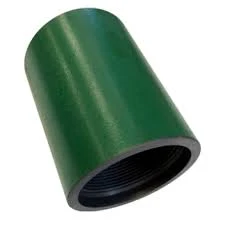- Afrikaans
- Albanian
- Amharic
- Arabic
- Armenian
- Azerbaijani
- Basque
- Belarusian
- Bengali
- Bosnian
- Bulgarian
- Catalan
- Cebuano
- Corsican
- Croatian
- Czech
- Danish
- Dutch
- English
- Esperanto
- Estonian
- Finnish
- French
- Frisian
- Galician
- Georgian
- German
- Greek
- Gujarati
- Haitian Creole
- hausa
- hawaiian
- Hebrew
- Hindi
- Miao
- Hungarian
- Icelandic
- igbo
- Indonesian
- irish
- Italian
- Japanese
- Javanese
- Kannada
- kazakh
- Khmer
- Rwandese
- Korean
- Kurdish
- Kyrgyz
- Lao
- Latin
- Latvian
- Lithuanian
- Luxembourgish
- Macedonian
- Malgashi
- Malay
- Malayalam
- Maltese
- Maori
- Marathi
- Mongolian
- Myanmar
- Nepali
- Norwegian
- Norwegian
- Occitan
- Pashto
- Persian
- Polish
- Portuguese
- Punjabi
- Romanian
- Russian
- Samoan
- Scottish Gaelic
- Serbian
- Sesotho
- Shona
- Sindhi
- Sinhala
- Slovak
- Slovenian
- Somali
- Spanish
- Sundanese
- Swahili
- Swedish
- Tagalog
- Tajik
- Tamil
- Tatar
- Telugu
- Thai
- Turkish
- Turkmen
- Ukrainian
- Urdu
- Uighur
- Uzbek
- Vietnamese
- Welsh
- Bantu
- Yiddish
- Yoruba
- Zulu
Understanding Bull Plug Pipe Fittings and Their Applications in Piping Systems
Understanding Bull Plug Pipe Fittings A Comprehensive Overview
Pipe fittings are essential components in plumbing systems, allowing for the joining, redirecting, or terminating of pipes and tubing in various applications. Among the different types of fittings, the bull plug stands out due to its unique design and functionality. In this article, we will delve into the details of bull plug pipe fittings, their uses, benefits, and considerations when choosing the right fitting for your needs.
What is a Bull Plug?
A bull plug, also known as a pipe plug or a closing plug, is a type of fitting used to seal the end of a pipe or fitting. Unlike regular plugs, bull plugs are characterized by their robust construction and design that ensures a tight seal. They are typically made from materials such as steel, brass, or plastic, depending on the application requirements. Bull plugs can be used in various systems, including water, gas, and hydraulic applications.
Features and Functionality
Bull plugs are designed with a tapered end that allows for secure insertion into a pipe's opening. This tapered design helps to create a tight seal, preventing leaks and ensuring the integrity of the piping system. The plug is often threaded on the outside, allowing it to be screwed into a correspondingly threaded pipe or fitting.
One of the notable features of bull plugs is their ability to withstand high pressures and temperatures. This makes them suitable for various industrial applications, such as oil and gas pipelines, chemical processing plants, and water systems. Additionally, many bull plugs come with a variety of coatings and finishes that enhance their corrosion resistance, further extending their lifespan.
Applications of Bull Plugs
Bull plugs are versatile and can be used in various applications, including
1. Water Systems They are commonly used in plumbing to close off pipe ends, ensuring no water escapes from the system during maintenance or repair.
2. Gas Systems Bull plugs are ideal for sealing gas lines to prevent leaks, making them crucial in residential and industrial settings.
3. Hydraulic Systems In hydraulic applications, bull plugs are used to close off ports and prevent fluid escape, maintaining system pressure.
4. Mechanical Equipment They are often used in machinery to seal ports or empty spaces where fluid might leak, ensuring optimal performance.
5. Testing and Maintenance Bull plugs are frequently employed during testing procedures to seal off sections of piping, allowing for pressure testing without leaks.
Benefits of Using Bull Plugs
bull plug pipe fitting

The use of bull plugs in piping systems offers several benefits
1. Efficiency Bull plugs provide a quick and reliable method for sealing pipes, which can save time during installation and maintenance.
2. Durability Made from high-quality materials, bull plugs are built to last, providing a long-term solution to prevent leaks.
3. Leak Prevention Their tapered design ensures a tight fit, significantly reducing the likelihood of leaks in the system.
4. Versatility With various sizes and materials available, bull plugs can be used in a wide range of applications and environments.
5. Cost-Effectiveness By preventing leaks and ensuring efficient operation, bull plugs can contribute to overall cost savings in system maintenance and operation.
Considerations When Choosing Bull Plugs
When selecting bull plugs for your piping system, consider the following factors
1. Material Choose the material that suits your application's requirements. Consider factors like temperature, pressure, and the nature of the fluid being transported.
2. Size and Threading Ensure that the bull plug matches the pipe size and has the correct threading for a secure fit.
3. Corrosion Resistance For applications involving corrosive environments, select bull plugs with appropriate coatings to enhance durability.
4. Pressure Ratings Verify that the bull plug can handle the expected pressure in your piping system to ensure safety and reliability.
Conclusion
Bull plug pipe fittings are indispensable components in many plumbing and industrial applications. Their robust design and secure sealing capabilities make them ideal for preventing leaks and maintaining the integrity of piping systems. By understanding their features, benefits, and the considerations for choosing the right bull plug, you can ensure the efficiency and longevity of your plumbing or industrial system. Whether you are involved in construction, maintenance, or engineering, knowledge of bull plugs will undoubtedly contribute to your success in managing fluid systems.
-
Tubing Pup Joints: Essential Components for Oil and Gas OperationsNewsJul.10,2025
-
Pup Joints: Essential Components for Reliable Drilling OperationsNewsJul.10,2025
-
Pipe Couplings: Connecting Your World EfficientlyNewsJul.10,2025
-
Mastering Oilfield Operations with Quality Tubing and CasingNewsJul.10,2025
-
High-Quality Casing Couplings for Every NeedNewsJul.10,2025
-
Boost Your Drilling Efficiency with Premium Crossover Tools & Seating NipplesNewsJul.10,2025







